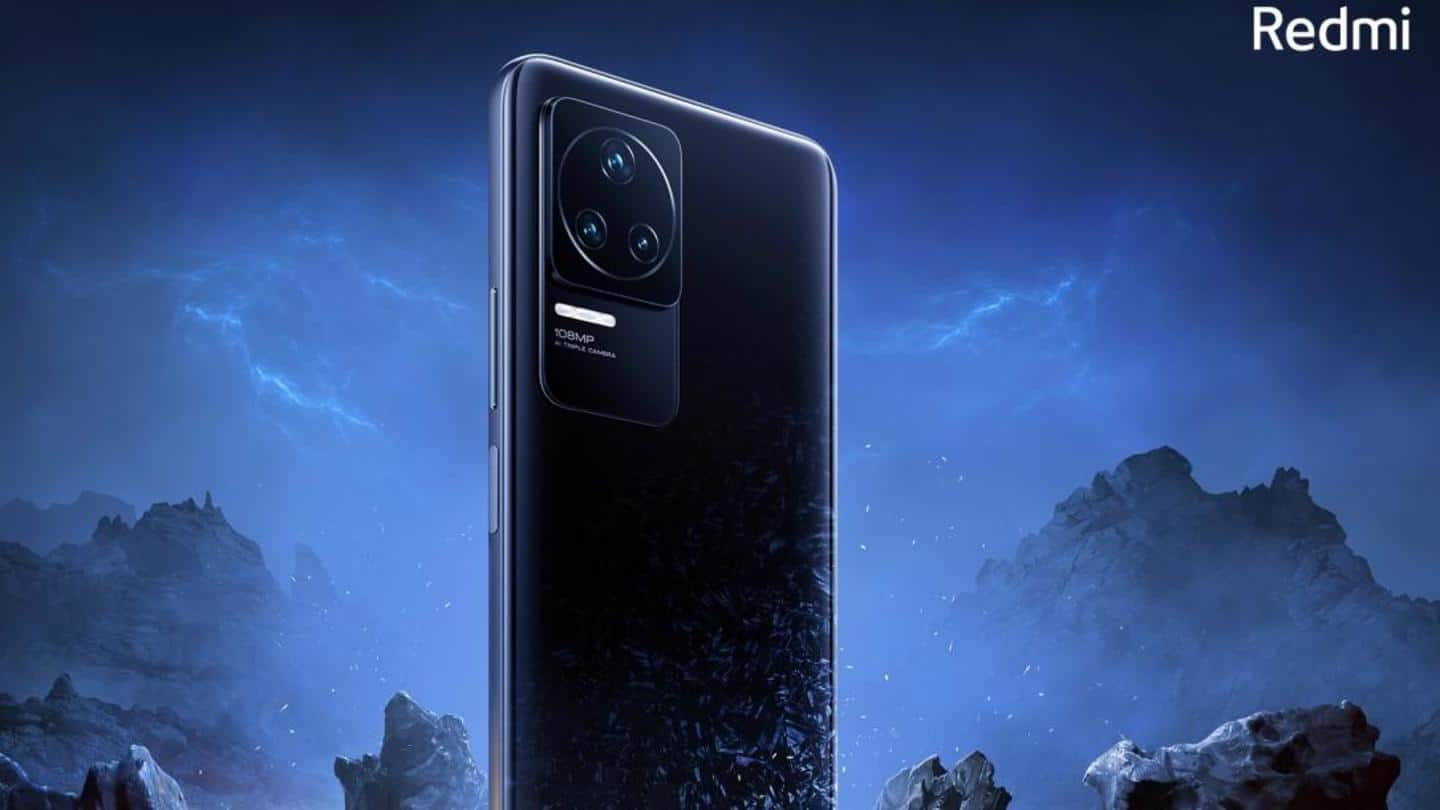
Redmi K50 Pro, Pro+ to have sparkling rear panel design
What's the story
Xiaomi is all set to launch its flagship Redmi K50 series in China on March 17. In the latest development, the company has confirmed the rear design and processors of the K50 Pro and K50 Pro+ via Weibo. They will feature a new "nano-microcrystalline" rear design with sparkling ice-like elements. The brand also released a video on the Chinese microblogging site showcasing the same.
Context
Why does this story matter?
With competition in the flagship segment tightening with each new release, every company has been trying to get the one up on the other. And, what Xiaomi is trying to accomplish with its upcoming Redmi K50 Pro and K50 Pro+ isn't different in any way. A stunning design and MediaTek's premium processors are bound to propel the handsets to the front of the line.
Display
The handsets will feature 120Hz AMOLED display
The Redmi K50 Pro and K50 Pro+ shall feature a centrally-aligned punch-hole cut-out, slim bezels, and an in-display fingerprint sensor. On the rear, they will sport sparkling ice-like elements and a rectangular camera unit. The handsets may bear a 6.67-inch Super AMOLED display with a 120Hz refresh rate, an aspect ratio of 20:9, and HDR10+ support.
Information
They will boast a 108MP main camera
The Redmi K50 Pro and K50 Pro+ will likely be equipped with a triple rear camera module, including a 108MP main shooter with OIS and two unspecified sensors. Up front, they will sport a single selfie snapper.
Internals
They will run on MIUI 13 based on Android 12
Redmi K50 Pro and K50 Pro+ will be powered by a MediaTek Dimensity 8100 and MediaTek Dimensity 9000 SoC, respectively, paired with up to 12GB of RAM and up to 256GB of internal storage. Under the hood, they will boot Android 12-based MIUI 13 and pack a battery with 120W fast-charging support. They should offer support for 5G, Wi-Fi, Bluetooth, and a Type-C port.
Information
Redmi K50 Pro and K50 Pro+: Pricing and availability
The official pricing and availability details of the Redmi K50 Pro and K50 Pro+ will be announced at the time of their launch. However, we expect the former to start at around Rs. 45,000 and the latter to begin at roughly Rs. 50,000.